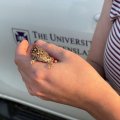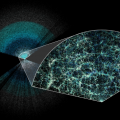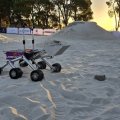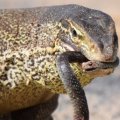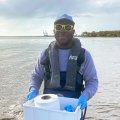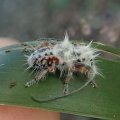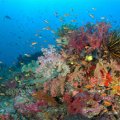University of Queensland ecologists have released research that will result in better crocodiles management and intervention.
Dr Hamish Campbell, from UQ's School of Biological Sciences, and colleagues from Australia Zoo have used satellite tagging to accurately record the location of male and female adult crocodiles during the breeding and nesting season.
“Social interactions are important to how estuarine crocodiles move and utilise new habitat,” Dr Campbell said.
“It is necessary to consider crocodile interactions prior to the implementation of management interventions.
“Removing the large dominant male crocodile ‘The boss croc’ will create a vacuum in the area that could be filled by another male which may be less wary of humans.”
The study, published in the PloS-ONE, involved tagging adult males and females in the Wenlock River.
Location data was collected twice daily and the calculation of the cumulative home range illustrated the movement patterns of the crocodiles.
Dr Campbell said the researchers found subordinate crocodiles travelled over 1000 km in 6 months, and could travel as much as 50 km in a single day
The ‘boss crocs’ were also very active but they moved around within their territory. .
“The data showed that large adult estuarine crocodiles were far more mobile than previously considered, and populations live within a complex social system,” he said.
“It appears that the boss crocs control productive areas that contain females, and force out subordinate males that can still be more than four metres in length.
“These males roam over hundreds of kilometres in search of a mate, and are likely to be the crocodiles that turn up as problem animals.”
Dr Campbell said the study strongly recommend that the impact of crocodile removal on the social dynamics of the population be thoroughly evaluated.
“Only by thorough evaluation of this management strategy, taking into account any consequences of social disturbance, can the desired outcome be achieved,” he said.
The study was supported by Australia Zoo, the Australian Research Council and funds donated by golfer Greg Norman.
Media: UQ School of Biological Science, Dr Hamish Campbell, 07 3365 2516, 0435 294 197. UQ Communications Officer, Tracey Franchi 07 3365 4831.

